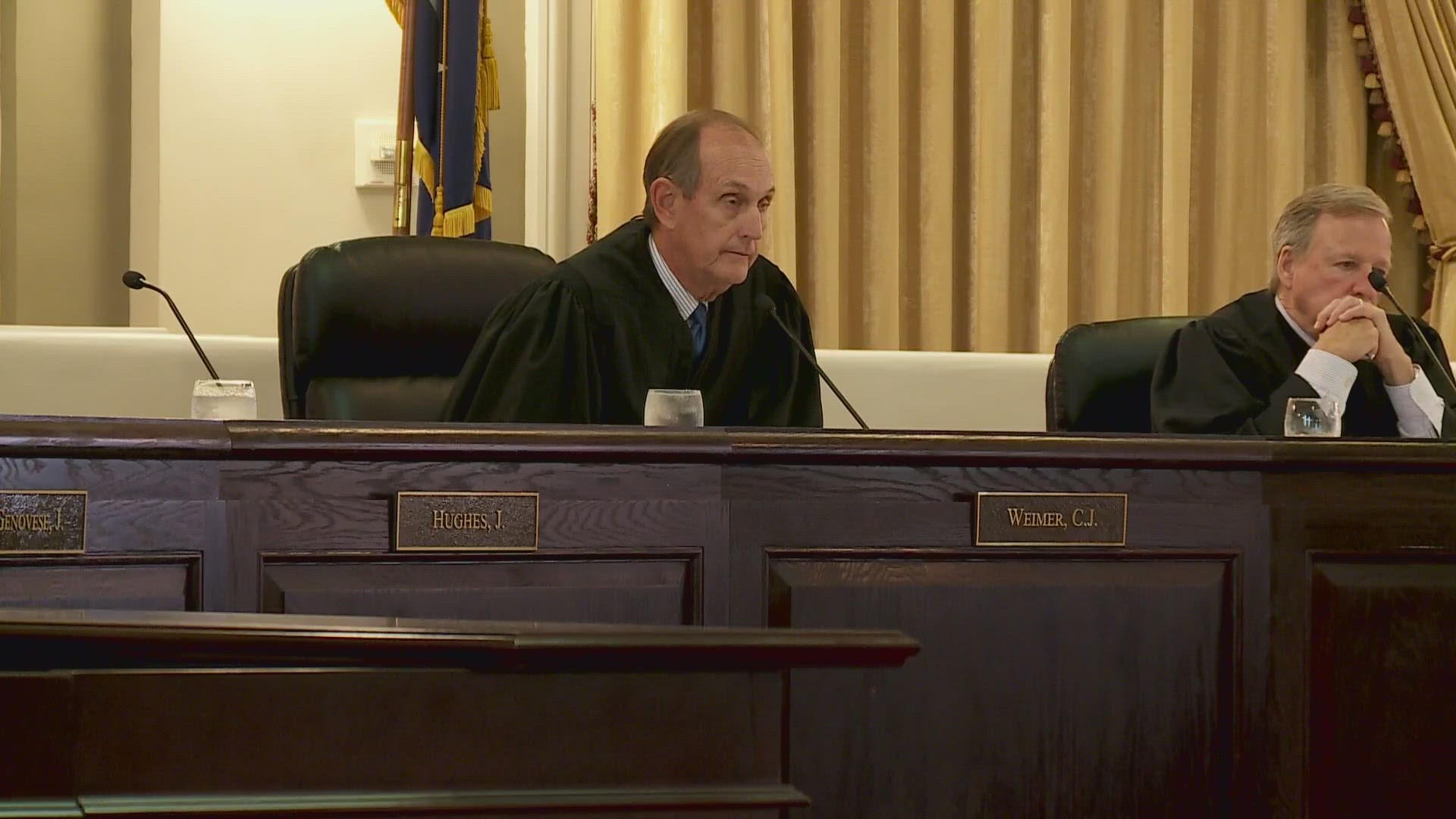NEW ORLEANS — The Louisiana Supreme Court punted Tuesday on a major question facing hundreds of child sexual abuse claims, declining to rule on the constitutionality of a 2021 Louisiana law allowing hundreds of child sexual abuse survivors to file lawsuits for abuse that happened decades ago.
Survivors of child molestation had been waiting for the ruling since oral arguments in New Orleans on May 1.
But attorneys representing survivors said they were encouraged that the Supreme Court ruling at least would allow them to amend their lawsuits to comply with a 2022 law that clarified the Legislature’s intent to open a “lookback window” for filing claims about abuse, regardless of when it happened.
The 2021 law granted a three-year “lookback window” to victims to file new civil lawsuits seeking damages for sexual abuse they allegedly suffered at the hands of priests, teachers, camp counselors or other people of authority when they were children.
The Louisiana Legislature followed the lead of other states and created the lookback window based on testimony and data showing the average child sexual abuse victim doesn’t come forward until their 50s.
But Holy Cross College challenged the constitutionality of the law, saying it had a constitutional right to avoid lawsuits once a deadline to file suit had already passed.
In the case before the Supreme Court, the Brother Stanley Repucci, a teacher Holy Cross employed in 1964 and 1965, was accused of molesting an 11-year-old boy during that time. The school argued that under the law in place at the time, the boy’s right to sue expired in 1966, one year after the alleged abuse happened.
The majority of the Supreme Court justices agreed with the lower court that the deadline to file a claim had passed, or “prescribed.”
Two of the justices, William Crain and Scott Crichton, disagreed, saying the lawsuit was filed timely under the 2022 version of the law and the trial court should have ruled based on that.
Chief Justice John Weimer said it was a mistake not to address the constitutionality of the lookback window in general because, even if a case is reconsidered under the 2022 version of the law, the court still would have to decide eventually if it’s constitutional or not.
"It is my opinion that the court should address this fundamentally important issue at this time, consistent with the shared interest of both the parties and the judiciary in the efficient administration of justice," Weimer wrote in his dissent.
There is another way victims can file claims after such a deadline passes: if they can show they were prevented from doing so as children and only became able to report it as an adult.
The alleged victim in the Holy Cross case, who filed his lawsuit using the initials T.S., started talking about his abuse again as an adult, first at a rehabilitation center in 1982 and again when he contacted Holy Cross about it in 2008.
The Supreme Court, therefore, found his right to file a lawsuit had expired in 2009, at the latest.
In 1993, the state extended the deadline to sue, recognizing children should be given time as adults to recover suppressed memories of child abuse before facing a deadline to sue.
The Catholic Church and others argued that the 2021 “lookback window” didn’t expressly apply to abuse that happened before 1993 and the Supreme Court agreed with that, as well.
But the Legislature clarified that in the 2022 version of the law, stating clearly that it actually applied to any child abuse that took place at any time.
The Supreme Court ruling only addressed the 2021 legislation and stated that it looked at the legislative intent.
Kristi Schubert, an attorney representing dozens of child molestation survivors, said that’s good news for her clients.
“Because in this instance of this law, we do have very clear legislative intent to revive all prescribed cases,” Schubert said. “And I'm very hopeful that the ultimate decision on constitutionality from the Supreme Court will be one that supports survivors of childhood sexual abuse.”
Schubert filed the first lawsuit after the lookback window opened, and she said she would be amending it and others she’s handling to reflect the 2022 law.
► Get breaking news from your neighborhood delivered directly to you by downloading the new FREE WWL-TV News app now in the IOS App Store or Google Play.

